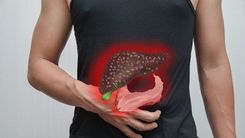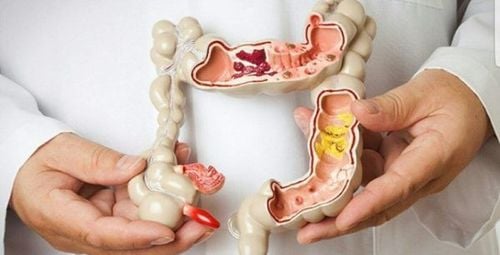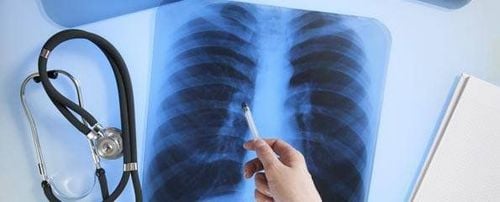Dr. Le Thi Nha Hien, Department of Examination and Internal Medicine - Vinmec Nha Trang International General Hospital, provided expert guidance for this article.
Terminal lung cancer (stage 4) occurs when the cancer has spread from the lungs to other parts of the body. When the disease has spread, all treatment options try to delay its progression but cannot cure it. The following are some frequent questions and answers about the terminal stages of lung cancer.
1. What is terminal lung cancer (stage IV)?
When diagnosed with terminal lung cancer, a person's life expectancy can range from a few months to a few years, or even a few weeks. Following the test results, the doctor will inform the patient about their current health status and anticipated future progression.
When the doctor identifies that the disease has progressed to the final stage of lung cancer, treatments are focused on symptom management such as pain control and other cancer symptoms to make the patient more comfortable.
Emotional support is a vital aspect of the treatment process. Accepting stage 4 lung cancer can be challenging, but health care teams and medical professionals can support patients and their families during this time.
Understanding your own or a loved one's current health status and anticipating future progression can help people navigate the treatment process and receive the necessary support.

2. What are the signs of terminal lung cancer?
The following are some common signs of terminal lung cancer:
- Dyspnea.
- Chest discomfort.
- Coughing.
- Diminished ability to concentrate.
- Confusion.
- Extreme weakness and tiredness.
- Decrease in appetite.
- Restlessness.
- Rumbling sounds in the throat and upper chest during breathing.
- Rapid breathing or apneas.
If a patient has one or more of these symptoms, it doesn't mean they are at the end of life, but it does mean their health is getting worse quickly. Doctors and other health-care professionals can offer therapies to manage these symptoms and improve the patient's quality of life.
In addition to physical symptoms, anxiety and depression are common during this time. During this time, support from home, hospital, or community therapy can be beneficial. If the patient is religious, getting advice from members of their religious group might also help to calm their mind.
3. How do people die from lung cancer?
Cancer occurs when cells multiply much faster than normal. Those extra cells form tumors and can spread to other parts of the body, possibly damaging organs or preventing them from working.
Cancer can damage the lungs to the point where they can't get enough oxygen to meet the body's needs. Or a large tumor can block the lungs and make it difficult to breathe.
Sometimes bacteria that cause infections like pneumonia develop when there is a blockage in your lungs. Your body may be too weak from the cancer to fight the infection.
A tumor can also block a blood vessel. This blockage can slow or stop the flow of blood to the lungs and other parts of the body.
Lung cancer also spreads to vital organs such as the liver. Damage to the liver can prevent the liver from doing its job of removing toxins from the blood, helping your body store energy, and produce cholesterol and protein.
Cancer metastasis to the brain also threatens the patient's life. The brain controls all vital functions, including breathing.
4. What is the life expectancy of patients with stage 4 lung cancer?
According to the American Cancer Society, stage 4 lung cancer patients have a 5-year survival rate of approximately 6%.
However, each individual's response to lung cancer may differ. Some people may live for only a few weeks or months after being diagnosed, while others may live for years. A person's life expectancy is determined by a variety of factors, including age, overall health, and the location of the tumor in the body.
5. How long does a lung cancer patient live without treatment?
Patients with stage 4 lung cancer require a comprehensive plan of care and treatment. Chemotherapy, targeted therapy, and immunotherapy are used to manage the disease and improve quality of life.
Systemic medication treatments (such as chemotherapy, targeted therapy, immunotherapy, radiation, and so on) do not cure the disease, but they can help the patient live longer.
Furthermore, palliative care is important in reducing pain and improving the patient's quality of life, especially when the patient is unable or unable to continue with specific treatments.

6. What is the average life expectancy of a terminal stage lung cancer patient without treatment?
Chemotherapy and immunotherapy are two treatment options that can help people with terminal lung cancer live longer. However, not everyone is able or willing to continue treatment.
It is difficult to determine how long a patient can live without treatment. According to research, persons with non-small cell lung cancer had an average survival time of 7 months without therapy. However, some people live longer or shorter than seven months.
In summary, doctors can anticipate a patient's prognosis for stage 4 lung cancer based on their symptoms and metastatic cancer spread.
When specific treatments are no longer effective in the final stages, patients may be recommended to hospice care. Doctors will aim to manage symptoms and provide support for the patient at the end of life. This service can be performed at home or in a cancer treatment center.
Terminal lung cancer can be a difficult time for patients and their loved ones. It is critical to ensure that the patient receives all of the support from friends, family, doctors, and other members of the healthcare team.
7. Is terminal lung cancer contagious?
Stage 4 lung cancer is not contagious, unlike germs and viruses. Lung cancer is caused by the uncontrolled proliferation of abnormal cells.
8. How should a patient with lung cancer be cared for in the final stages?
Caring for a patient with terminal lung cancer might take place at home, in an outpatient facility, or in a hospital, depending on the patient's choices and circumstances. The fundamental purpose of care is to make the patient comfortable. Caregivers and medical professionals must consult with the patient about the challenges they are facing and propose care solutions that are appropriate for the patient's health state and wishes.
Please dial the HOTLINE for more information or to book an appointment HERE. Download the MyVinmec app to book appointments faster and manage your bookings easily.
ReferencesLung cancer prevention and early detection. (n.d.). cancer.org/cancer/lungcancer-non-smallcell/moreinformation/lungcancerpreventionandearlydetection/lung-cancer-prevention-and-early-detection-signs-and-symptoms Lung cancer. (2018). lung.org/lung-health-and-diseases/lung-disease-lookup/lung-cancer/ Malignant mesothelioma. (n.d.). cancer.org/cancer/malignant-mesothelioma.html Mayo Clinic Staff. (2018). Lung cancer. mayoclinic.org/diseases-conditions/lung-cancer/basics/alternative-medicine/con-20025531














